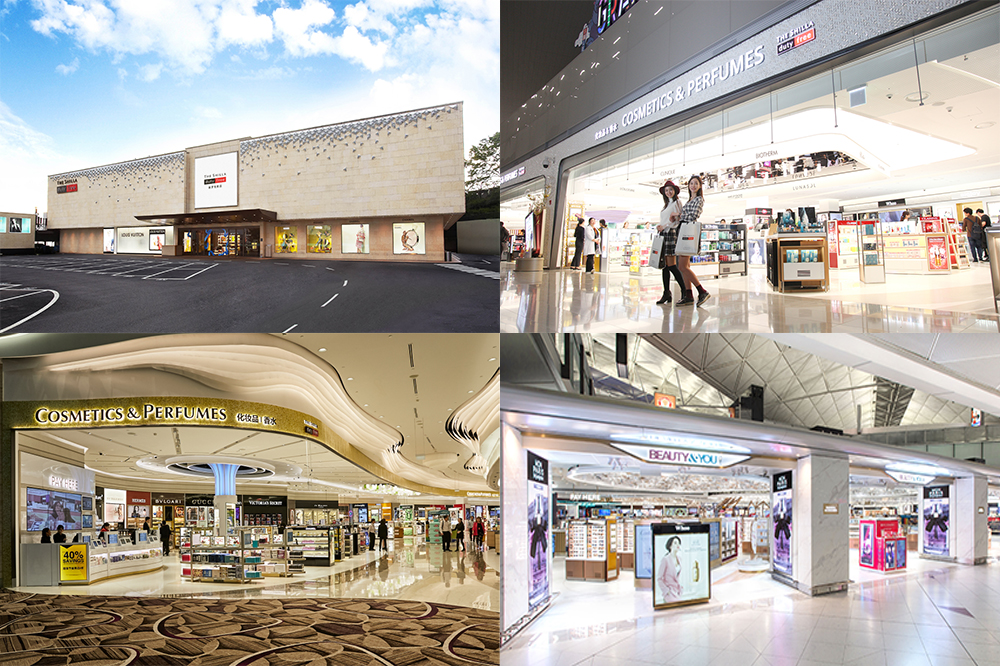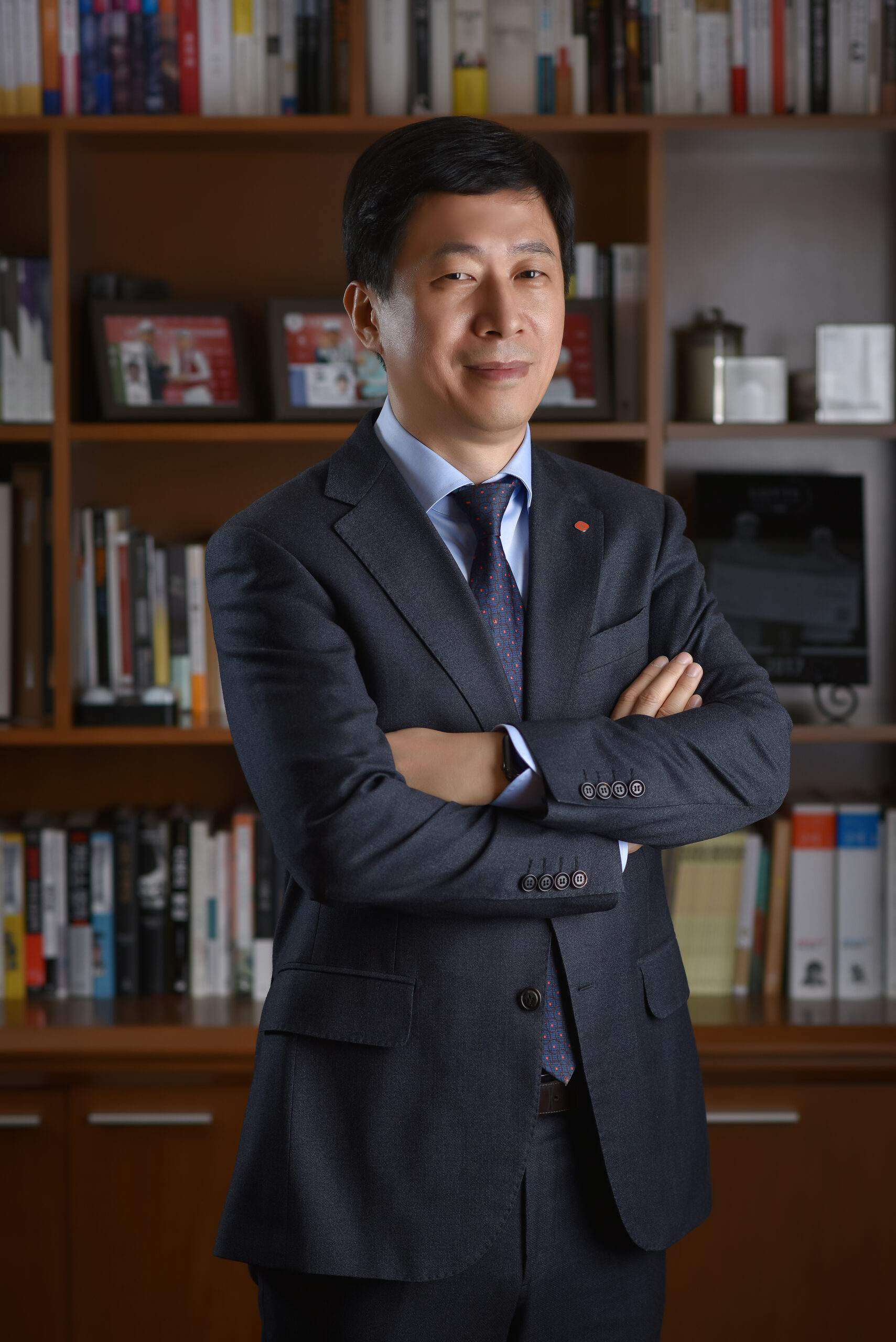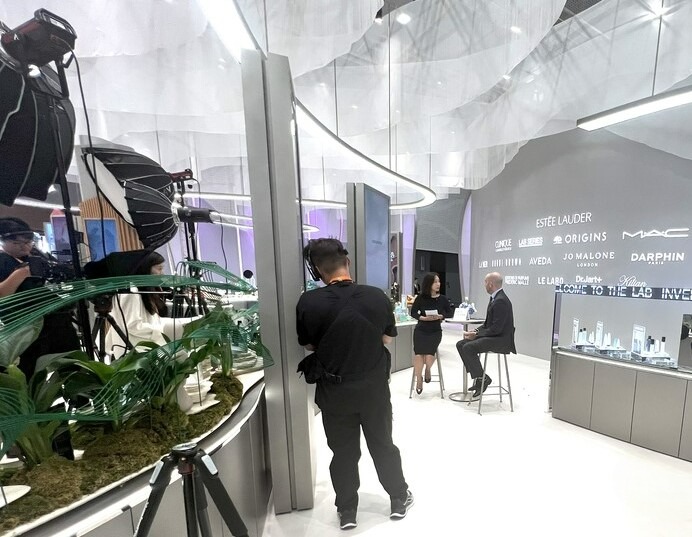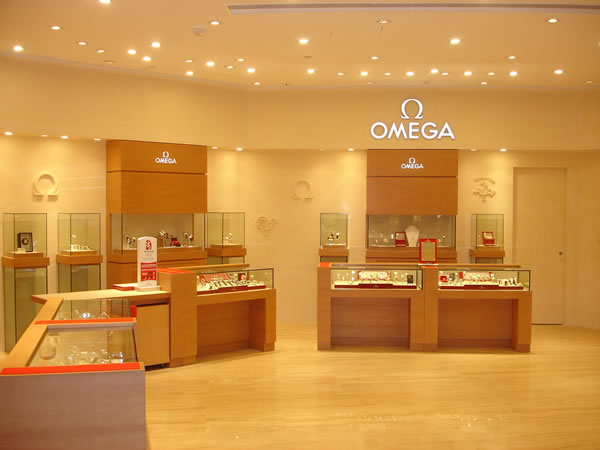SOUTH KOREA. The country’s travel retail landscape has been redefined after a dramatic week which saw Lotte Duty Free snap up the Changi Airport liquor & tobacco concession and arch rival Hotel Shilla (parent of The Shilla Duty Free) take a 44% stake in 3Sixty Duty Free of the US.
Both moves reflect each company’s desire – and need – to diversify outside their Korean strongholds. The Korean duty free market remains the world’s largest and has shown strong growth throughout 2019. As reported, sales grew by +23.2% year-on-year in September to KRW2,242.2 billion (US$1,872.1 million) – the second-highest month in industry history.
The market’s strength was further reflected on Friday as The Shilla Duty Free’s Korea duty free operations posted a new quarterly sales high, rising +28.8% year-on-year in Q3 to KRW1,075.3 billion. The buoyant downtown duty free sales surged by +36.8%.

But those numbers mask a vulnerability that has escalated since the THAAD anti-missile system dispute between China and South Korea erupted in early 2017. That row quickly led to a ban on Chinese group tours and a remarkable and sustained change in the nature of Korean duty free. With Chinese tourism to Korea in freefall, one might have expected a similar slump in duty free sales. Instead the market boomed and has continued to do so ever since.
That is, of course, because of the daigou (shuttle traders) phenomenon that has driven the market to new heights. September’s market numbers show that foreigners accounted for an overwhelming 85.9% share of sales. Most of those foreigners are Chinese and, in turn, most are daigou traders.
The daigou business is not traditional duty free business. It is not about customers buying products they desire or need for themselves, friends or family, it is all about buying what they can resell, usually in large quantities. That reseller’s market exists in the vast form of the Chinese nation and the considerable differential between Korean duty free and Chinese local market pricing.
So far, so good. What if though, as we have postulated many times, the Chinese authorities decide to curb or even ultimately eliminate such business? In January Beijing introduced a new ecommerce law designed to place greater control on cross-border trading. So far it has not had the impact on daigou duty free shopping that many predicted – other than to see a reorganisation of the sector into bigger, more controlled daigou groups. But China’s ability to turn off the tap is clear for all to see.
Watch, too, other moves by the Mainland authorities to maximise domestic consumption. More arrivals and post-arrivals duty free; more ‘offshore duty free’ licences in Hainan (and increased allowances); and the likelihood of Korean-style downtown stores where Chinese can shop before departure.
Lotte or Shilla also worry about the regulatory landscape at home. Successive governments have blithely treated the duty free sector like a golden egg, encouraging a proliferation of licences that has pressured retailers’ profitability and sent tour group commission rates soaring.

Lotte Duty Free, world number two in The Moodie Davitt Report Top 25 Travel Retailers league and Shilla, number three, have both fought hard in recent years to balance that domestic reliance.
Lotte has bid on numerous international tenders with limited success. Its most notable failure came at Changi Airport in 2007, when the-then Civil Aviation Authority of Singapore (CAAS) defied previous practice by not awarding the contract to the top bidder (Lotte) but to the next-highest (incumbent DFS Group), a decision that infuriated the Korean giant. Lotte has since won smaller contracts in locations such as Guam, Indonesia and Vietnam and acquired Australasian retailer JR/Duty Free in late 2018. But it lacked the big, blue-riband victory that would cement its status as an international player – and help drive its ambition to be the sector number one.
In winning the Changi tender, it has advanced both aims. The Moodie Davitt Report estimates the contract generated around S$590 million (US$430 million) in sales last year, around S$400 million of that in departures, the balance from arrivals duty free. For tobacco, the entire business was in departures.
Changi Airport Group (CAG) Executive Vice President, Commercial Lim Peck Hoon said: “Lotte put forth the strongest and most compelling proposal overall” of the three bidders.” For ‘strongest’ read highest. Reliable sources confirm that the Korean company’s offer was the only one in the financial ballpark that CAG required, far ahead of Shilla and then Gebr Heinemann’s more conservative proposal. Can Lotte make money on a contract that carries as much risk as it does status? Unlikely. In fact, its losses are likely to be considerable. But that is a price it is clearly prepared to pay.
“We are currently pursuing a vision to become the Global No.1.” CEO Kap Lee told The Moodie Davitt Report after we broke the news of Lotte’s victory. “Consequently, in order to realise this vision, we are aiming for globalisation, and winning the Changi Airport concession was definitely one element of it.”
Shilla has enjoyed two high-profile international airport tender victories in recent years – Changi’s perfumes & cosmetics concession and the Hong Kong International Airport beauty & accessories contract – while making advances elsewhere including Macau, Thailand and Japan. The circa-US$140 million investment in a 44% stake in 3Sixty Duty Free (the former DFASS) brings the US into play as well as the airline retail channel. Expect the US airport retail bidding scene to heat up considerably as Shilla will be prepared to take risks that a family-owned business such as DFASS would not.
Two different routes then to globalisation. One involving a high-status, high-risk contract; the other a significant minority stake in an entrepreneurial enterprise. How those contrasting investments will play out is difficult to call. But one thing is for certain – Korea’s dynamic duo are now well-advanced on their similar missions to become true global players.












